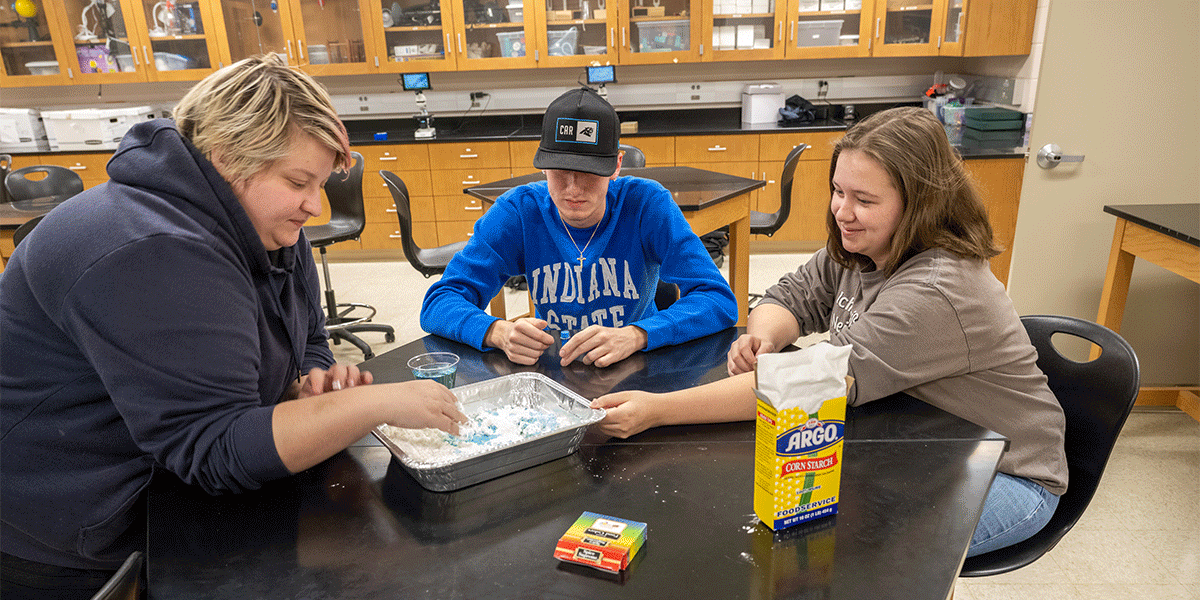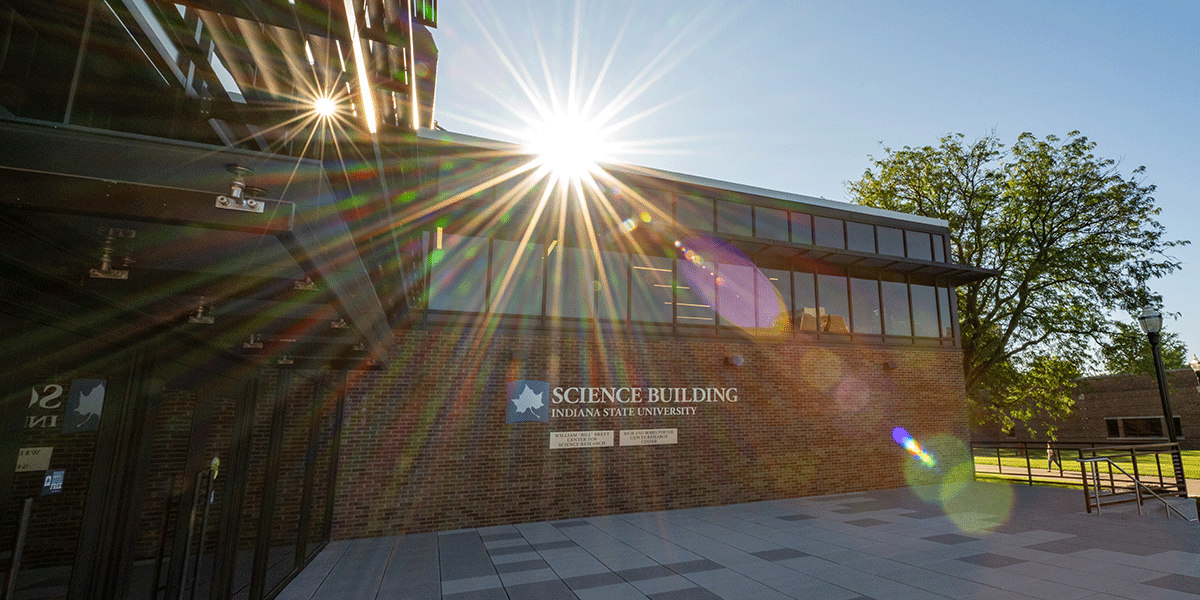Why Earn a Bachelor’s Degree in Science Education at Indiana State?
The Science Education Program consists of science content courses, professional education courses, and science teaching methodology courses. The program also requires one semester of full-time student teaching in a secondary science classroom. The program leads to Indiana teaching licensure for grades 5–12 in one of the following science disciplines (Grades 5–9 for Middle School Science concentration).
Educate Students on Interesting Topics
Science education helps students learn to ask questions, carry out investigations, analyze and interpret data, construct evidence-based explanations, solve problems, and apply what they learn to real-world situations. As a science education major at Indiana State, you will become licensed to teach biology, chemistry, physics, earth space science, or middle school science. The program includes science content courses in a particular science field, as well as professional education courses.
You will also have opportunities to teach in a range of volunteer or internship experiences. These include participating as an undergraduate research assistant, as a student leader of outreach projects such as Indiana State’s Bat Festival, as a mentor for the Indiana State Summer Science Camp, or as a science fair judge for local school corporations.
Learn from Our Excellent Faculty
The Indiana State Science Education Center's instructors are passionate about science and teaching. They conduct science education research projects and publish them as research papers and books. They also participate in various community engagement activities for local K-12 students. Your professors will guide your early field experiences, supervise your student-teaching experiences, and provide you with instruction and resources for other learning activities.
Our small class sizes enable our faculty to provide individualized instruction and mentorship, and as part of Indiana State’s commitment to experiential learning, you will have the opportunity to collaborate with your instructors.
What You'll Learn in the Science Education Program
The science education major provides a solid foundation in science education for the middle- and high-school grade levels. You will receive training in the theory and practice of teaching science topics, including biology, chemistry, physics, and earth space science. The degree prepares you for science teaching licensure in Indiana.
You will take classes in the Science Education Center and other science departments related to your concentration within the College of Arts and Sciences. You will also take education classes at the Bayh College of Education. Our science education bachelor’s degree can be completed in four years of full-time study.
NOTE: For the science education major, you must complete one of the following concentrations: biology teaching, chemistry teaching, physics teaching, earth space science teaching, or middle school science teaching. A minimum 2.50 cumulative GPA is required for all science education majors.
Coursework in the science education program will conclude with a semester-long student teaching experience. The student-teaching experience will be completed in a middle- or high-school setting.
In addition to your general science education classes, you will complete courses in the science field you choose to teach.
Concentrations
This program is designed for students who intend to teach biology to high school students. Students are also qualified to teach all science topics to middle school students.
arrow_forward View the Full Curriculum
This program is designed for students who are interested in teaching chemistry to high school students. Students are also qualified to teach all science topics to middle school students.
arrow_forward View the Full CurriculumThis program is designed for students who are interested in teaching earth-space science to high school students. Students are also qualified to teach all science topics to middle school students.
arrow_forward View the Full CurriculumThis program is designed for students who are interested in teaching all science topics to middle school students.
arrow_forward View the Full CurriculumThis program is designed for students who wish to teach physics to high school students. Students are also qualified to teach all science topics to middle school students.
arrow_forward View the Full Curriculum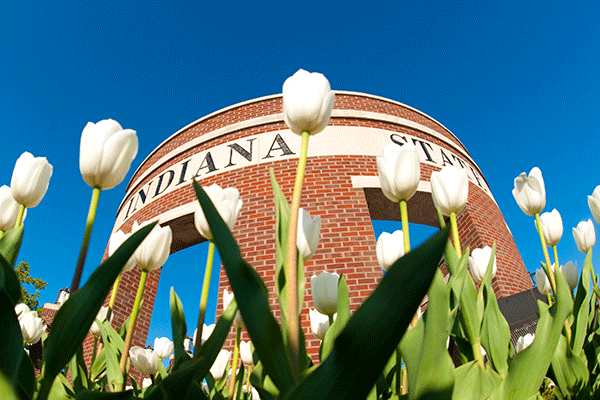
Transfer Credit
Indiana State University accepts credit from regionally accredited colleges and universities within the United States, and from selected schools located outside the United States. Credit also may be granted for military training and experience. Previously earned college credit can be applied toward completion of the program per Indiana State's transfer guidelines.
Transfer GuidelinesCareer Possibilities for Science Education Majors
Our graduates are qualified to take the State of Indiana licensing exam for teaching science in the grades 5-12. Most of our students teach at the middle school or high school levels. However, graduates are also prepared to become informal science educators at nature centers, museums, zoos, aquariums, and outdoor education programs, or to pursue graduate studies.
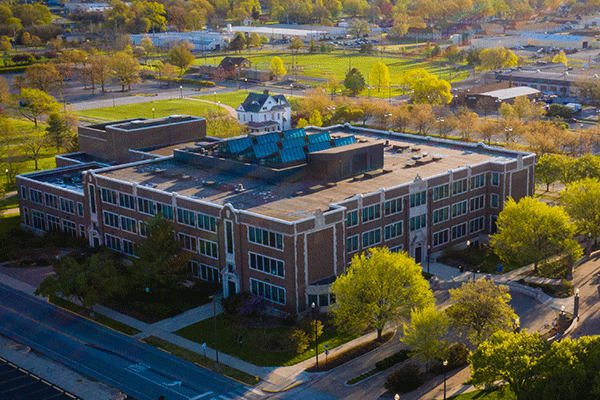
Join the Indiana Student Education Association
Join your science education peers in the Indiana Student Education Association, a professional organization for tomorrow’s teachers. With the support of other local, state, and national chapters, the organization provides learning opportunities for professional development as an outstanding teacher.
Accreditation
Indiana State University is accredited by the Higher Learning Commission.
In addition, the Science Education program is accredited by the Council for the Accreditation of Educator Preparation (CAEP) and Indiana State Board of Education.
Related Programs
-

Biology (BS)
Bachelor's
-

Chemistry (BS/BA)
Bachelor's
-
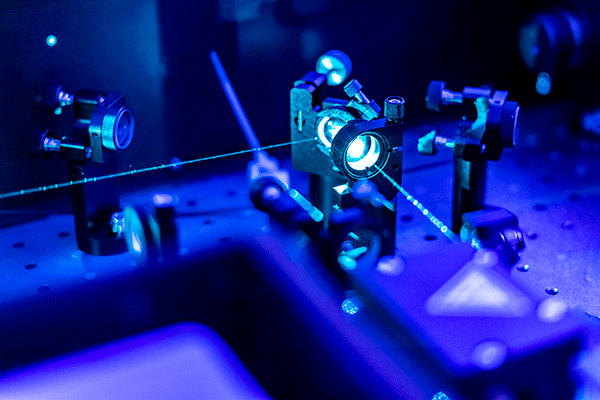
Physics (BS, BA)
Bachelor's
